Usually, nobody is aware of covid anxiety syndrome. Some people find it difficult to rebuild their normal lives after lockdowns and restrictions are eased in several locations globally. It’s not surprising that fear and anxiety have increased as a result of going out and mingling with other people.
What is covid anxiety syndrome?
Initially, many of us were on high alert, fearing the impact on our health of coronavirus. Scientists have observed, however, that people have been adopting certain traits at a greater rate than before.
The deployment of COVID-19 vaccines and the overall decline in COVID prevalence have not stopped some people from experiencing COVID-19 anxiety syndrome.
The COVID-19 anxiety syndrome (CAS) is defined as follows:
- Constantly monitoring for covid symptoms
- Avoiding public places
- Obsessive cleaning
- Other maladaptive behaviors
There are now concerns that even after COVID is contained, obsessive distress and avoidance behaviors are unlikely to subside quickly, such as avoiding public transportation or bleaching your home for hours at a time.
From the data collected from about 500 participants in June 2020 (an investigation of general anxiety and depression levels), CAS was found to predict anxiety and depression levels more accurately than other variables such as personality traits and health anxiety.
Based on surveys of nearly 300 adults in the UK, the same researchers have gathered preliminary evidence that CAS is a single predictor of general anxiety and depressive symptoms over the course of the pandemic.
Symptoms of covid anxiety syndrome are similar to those of anxiety, post traumatic stress disorder (PTSD) and obsessive-compulsive disorder (OCD).
Read: Corona Virus Effects on Brain
Signs of covid anxiety syndrome
Listed below are a few coronavirus anxiety symptoms that you may be suffering and may benefit from additional support and assistance:
- COVID-19 occupies all of your thoughts
- Even when the risk is low, anxiety interferes with daily activities, such as going to work or shopping
- It makes it difficult to socialize
- The pandemic makes you feel hopeless and bitter
- It makes it difficult to sleep
- You feel unusually ill, including headaches and stomachaches
Those with this anxiety syndrome are likely to experience post-traumatic stress, social anxiety, anxiety about their health, and even suicidal thoughts.
Are anxious feelings ever beyond “Normal”?
If you are unsure whether you have CAS or another anxiety disorder, consider the following questions:
- Does my response align with the potential danger or risk?
- Can my loved ones tell whether I am worried, fearful or avoidant?
- Am I following local guidelines to avoid exposure to COVID, such as wearing masks, social distancing, and washing my hands? When it’s not necessary to avoid people and situations, do I go out of my way to do so?
Getting help from a professional might be worthwhile if your level of anxiety does not align with any potential threats.
Read: COVID-19 Stress
Causes of covid anxiety syndrome
The researchers suggest the symptoms of CAS, such as isolation, fear of contracting COVID-19, and uncertainty may have been shared by some during the pandemic.
It might also be affected by the five “Big 5” personality traits. CAS is more likely to develop in those who possess a high level of neuroticism. People who are highly agreeable, open, and extroverted tend to be at lower risk.
COVID-19 concerns may exacerbate obsessive-compulsive disorder in addition to more vulnerable individuals. Many people (vaccinated or not) are constantly worried about COVID and avoid things that could raise their risk. Researchers are still in the early stages of research and must consider a variety of complex factors.
Additional contributing factors
CAS can also be caused by the following factors:
- Uncertainty threshold is low. People who are prone to worry excessively, prone to uncertainty, and vulnerable to COVID-19 may be most prone to this type of anxiety.
- Media coverage. Social media and news outlets have covered COVID-19 extensively. Although the virus is constantly changing, facts and information about how it evolves result in anxiety and mistrust among the public.
- The fear of the unknown is exploited to get compliance. Additionally, researchers suggest that official use of fear unintentionally, as a means of ensuring compliance with safety precautions, may contribute to anxiety and excessive worry.
Related: COVID-19 and Depression
How to cope covid anxiety
Symptoms of COVID anxiety syndrome can be managed in a variety of ways:
- Seek positive messages about the progress we’ve made during the pandemic, such as vaccine development and reduced risk.
- Do not rush things, even if it is expected that everything will return to normal quickly. Experiment with new situations inside your comfort zone slowly and steadily while continuing to take safety precautions.
- Wear disposable masks and gloves as well as hand sanitizer to reduce anxiety.
- Speak with a trusted individual about your feelings of anxiety. Being able to discuss your feelings will increase your confidence and allow others to assist you.
- Whenever possible, stay mindful of articles in the news and social media that could trigger anxiety, and turn your attention towards positive, dependable sources of information. It may be beneficial to limit your exposure to news and media to once or twice a day.
- Focus on your own well-being. You can relieve stress by taking frequent breaks, exercising, and doing things you enjoy.
Read: COVID-19 and Your Mental Health
Treatment for covid anxiety
According to experts, it’s crucial to identify this syndrome so that it can be treated and prevented. Failure to do so can result in more severe consequences. Reach out to a therapist or counselor either in-office or online if you feel that your symptoms of COVID anxiety syndrome have lasted longer than a few weeks or interfered with your daily life.
People suffering from this unique and evolving mental health condition may also benefit from behavioral therapy and medications for treating anxiety or depression.
The Substance Abuse and Mental Health Services Administration (SAMHSA) National Helpline can provide information on substance abuse and mental health treatment for you or a loved one suffering from [condition name]. The telephone number is 1-888-664-4357.
Seek help: Mental Help Resources
Here is a message from Depressionals
If you suffer from severe anxiety, remember that it does not usually go away by itself. Therapy and medication can help you resolve the anxiety and live your life to the fullest.
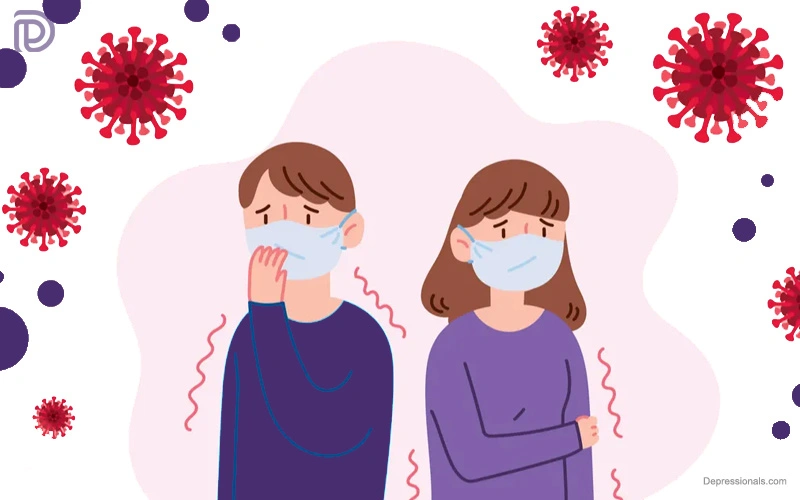
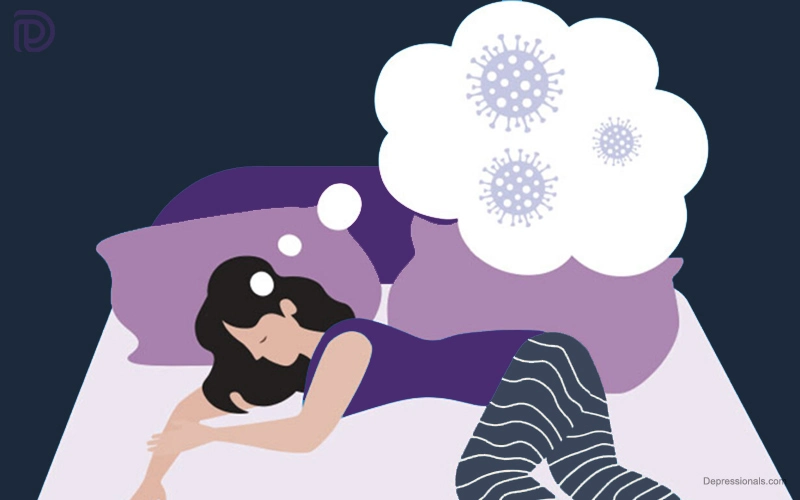
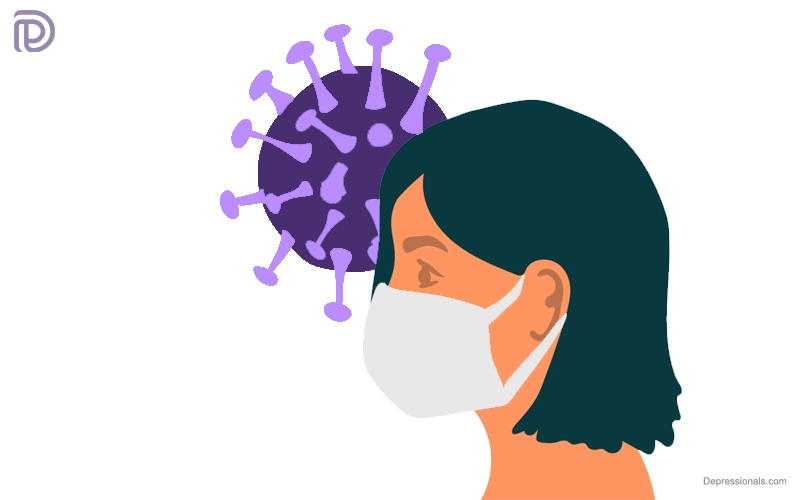
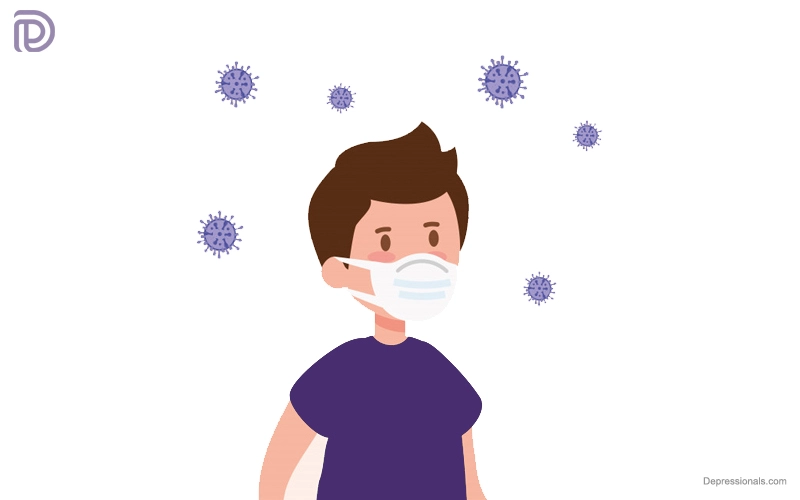
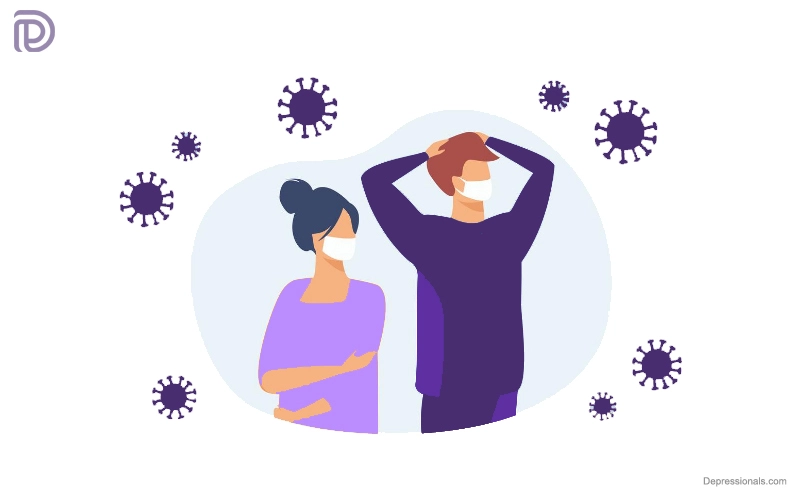

Thank you for posting this post. I found it extremely helpful because it explained what I was trying to say. I hope it can help others as well.
Thank you for your help and this post. It’s been great.
May I request that you elaborate on that? Your posts have been extremely helpful to me. Thank you!
Generally I don’t learn post on blogs, but I wish to say that this write-up very forced me to take a look at and do it! Your writing style has been surprised me. Thanks, very great article.
Dude these articles were really helpful to me. Thanks a lot.
Thanks for sharing your ideas on this blog.
I have been absent for some time, but now I remember why I used to love this site. Thank you, I?ll try and check back more often. How frequently you update your web site?
Please tell me more about this
Thanks for your help and for posting this. It’s been great.
you will have a great blog here! would you like to make some invite posts on my blog?
May I request more information on the subject? All of your articles are extremely useful to me. Thank you!
You’ve been really helpful to me. Thank you!
Dude these articles were really helpful to me. Thanks a lot.
What are your articles about? Please tell me more.
Thank you for writing so many excellent articles. May I request more information on the subject?
Thank you for posting such a wonderful article. It helped me a lot and I appreciate the topic.
You’ve been very helpful to me. Thank you!
The articles you write help me a lot and I like the topic
Thank you for your post. I really enjoyed reading it, especially because it addressed my issue. It helped me a lot and I hope it will help others too.
I always find your articles very helpful. Thank you!
Thank you for posting this post. I found it extremely helpful because it explained what I was trying to say. I hope it can help others as well.
Thank you for your excellent articles. Would you be able to help me out?
It is truly a great and helpful piece of info. I am satisfied that you simply shared this helpful information with us. Please stay us informed like this. Thanks for sharing.
Do you mind if I quote a couple of your articles as long as I provide credit and sources back to your weblog? My blog is in the exact same area of interest as yours and my visitors would certainly benefit from a lot of the information you provide here. Please let me know if this ok with you. Regards!
Hello, you used to write wonderful, but the last few posts have been kinda boring?K I miss your great writings. Past several posts are just a little bit out of track! come on!